- Home
- Bette Lee Crosby
The Regrets of Cyrus Dodd Page 5
The Regrets of Cyrus Dodd Read online
Page 5
When Cyrus returned that evening, he caught the smell of fried pork before he entered the house. Ruth was in the kitchen. She was wearing her blue dress, the one she hadn’t worn for well over a year. It hung loose on her bones, but for the first time in many months there was a blush of color in her face.
“That smells mighty good,” he said.
“I figured it’s sort of a celebration,” she replied, “so I wanted it to be special.”
He opened the cupboard door, reached to the back and pulled out the bottle of whiskey.
“I reckon it is somewhat of a celebration,” he said and poured the last of the whiskey into two glasses. He handed her the smaller glass.
“Here’s to the future,” he said and lifted the glass to his mouth. There was a lump of regret stuck in his throat as he spoke the words, but he washed it down with the whiskey.
* * *
As fate would have it, Virgil Jackson was the first to see the “For Sale” sign posted at the feed store.
“Well, I’ll be damned,” he muttered. He yanked the sign down, ripped it into a dozen little pieces and tossed them into the trash bucket. Then he walked to the back of the store and called out for Carson Chalmers.
“You know anything about Dodd putting his place up for sale?” he asked.
Carson nodded. “Yeah. There’s a sign back there, and I think Cyrus’s got an announcement in the newspaper too.”
“He say where he’s going?”
“Virginia, I believe,” Carson replied. “Said he was gonna be working for the railroad and making ten dollars a week.”
“Damn!” Virgil slammed his fist against the counter then turned toward the door. He was halfway out when he stopped and came back inside. He walked up to Carson and poked an angry finger at him.
“You better listen and listen good,” he said. “If any of these jackasses tries to buy the place from Dodd thinking I’m gonna open that dam, you’d best set them straight. I ain’t gonna do it! Never! Not from now ’til hell freezes over!”
He started for the door then stopped and gave a narrow-eyed look back. “I’m expecting you to spread the word, you got it?”
Carson nodded. “Got it.”
When Virgil pushed through the door, his expression was as hard set as a slab of granite.
Ace Morgan, who was standing over by the harnesses, heard the conversation. Once Virgil was out the door he gave a long low whistle.
“Whew,” he said. “Jackson’s really out to get Dodd, ain’t he?”
“Sure is.”
“You gonna do what he said?” Ace asked.
Carson grimaced and gave a one-shouldered shrug.
“Guess I’ve got to,” he said. “Can’t anybody afford to get on the bad side of Virgil Jackson.”
* * *
Three months passed, and every week Cyrus rode into town asking whether there’d been any interest in looking at the farm. Each time Carson gave a sorrowful shake of his head and said nothing.
On the Fourth of July Cyrus took Ruth to town to see the Independence Day parade.
“I still got some seed money left,” he said. “So you can pick out cloth for a new dress and maybe get some candy.”
By then Ruth had begun to look as she once did. Her face was still thin but it had better color, and her body had become fuller. She smiled happily at the thought of a new dress and said, “Blue. I’d like blue with flowers or checks on it.”
The parade didn’t start until noon, so they left the wagon behind the blacksmith shop and walked down to the dry goods store. Cyrus stood outside and waited. He was standing there when Ace came by and stopped to talk.
First they spoke about the parade and how Ruth was feeling. Then Ace said, “Seeing as how you can’t sell the farm, you still gonna go to Virginia?”
“Can’t sell the farm?” Cyrus repeated. “Says who?”
Ace gave a shrug. “I just figured with no water…”
“That water thing is just between Virgil and me. Once I’m gone, he’ll open up the dam and—” Cyrus noticed the look of doubt stretched across Ace’s face. “You got a different opinion?”
“It ain’t no opinion. I heard Virgil say it.”
“Say what?”
Ace Morgan was a man with no family and no responsibilities. He slept in a room behind the bar and swept up for a living. He had no money and nothing to lose, so he said what no one else was willing to say.
“Virgil done told everybody in town if they bought the place from you he was gonna keep that dam closed up forever. Ain’t nobody gonna pay good money for a farm what ain’t got water.”
Cyrus stood there saying nothing, not believing what he’d heard.
“I figured you already knew,” Ace added.
“I didn’t know.” Cyrus rubbed a rough hand across his forehead and stood there still looking at Ace but no longer seeing him. Moments later Ruth came from the store smiling.
“They had blue,” she said happily. “With yellow flowers!”
That afternoon Cyrus said nothing as they stood and watched the parade. Afterward they walked down to the bandstand, had a glass of sweet tea and then started for home. As the old horse clip-clopped along at an easy pace Ruth said, “You seem awfully quiet today.”
“Tired I guess,” he replied.
That night, long after Ruth had fallen asleep, Cyrus sat at the kitchen table with his revolver on the table and a box of shells next to it.
Any man who’d go to such lengths to destroy another man’s life deserves to die.
He took the gun in his hand, clicked the latch and swung the cylinder open. One by one he loaded shells into all six chambers. He sat for a long while looking at the open cylinders and sliding a sliver of hatred into each chamber along with the shell.
Killing a man such as Virgil Jackson is a forgivable sin. It’s self-defense. It’s protecting my home and family.
He pushed the cylinder back into place and snapped it shut. From somewhere nearby he heard the screech of a hawk. It was loud and continued off and on for several minutes.
Even a bird will kill to protect its nest.
He closed the lid on the box of shells.
Thou shalt not kill.
Cyrus gave a labored sigh and laid the gun back on the table.
Vengeance is mine, sayeth the Lord.
He looked at the gun for a long while, then picked it up and clicked the latch and swung the cylinder open for a second time. Using his index finger he turned the cylinder one chamber at a time, looking at each shell and knowing what had to be done.
There will be a price to pay. Everything comes with a price. Even revenge.
Just as he was about to snap the loaded cylinder back into place, Ruth woke and called out for him.
“Cyrus, come to bed,” she said. “I need you here beside me.”
“I’ll be there shortly,” he answered.
He studied the gun in his hand. Revenge would be easy enough to come by, but what would be the cost?
An eye for an eye. A life for a life.
Whose life would he sacrifice? His? Ruth’s?
Cyrus removed a shell from the chamber and placed it back in the box. Ever so slowly he inched the cylinder forward, removing a second and then a third bullet. As he emptied the gun of the few remaining shells, he thought only of Ruth, of her call saying she needed him by her side.
When the gun was emptied and all of the shells returned to the box, Cyrus sat there and spun the empty cylinder around and around. He felt the ache of injustice settle inside of him and for a moment considered reloading the gun. Then Ruth called to him again.
“I’ll be right there,” he answered. He replaced the revolver in the drawer where it was kept and went to the bedroom. As he lay awake through the long hours of the night he reasoned that he had made the best possible decision, but there was no joy in it.
Three days passed before he found the heart to tell Ruth of the situation, and when he finally did a look of fear s
ettled on her face.
“Does that mean we have to stay here?” she asked.
Cyrus shook his head. “No. I promised you something better, and you’ll have it.”
“But…how?”
He touched his finger to her lips.
“Hush those worries,” he said. “We’re still going to Wyattsville. Instead of selling the farm, I’ll sell what we’ve got here. The cows, pigs, horse and wagon, plow…”
Tears filled Ruth’s eyes as she listened. When he’d finished naming all the things they’d sell, he said whatever was left they’d give to neighbors who had need of it.
“We’ll be traveling by train, so we can’t carry much. We’ll take our clothes and a few necessities—”
“And our memories,” Ruth added. “Even though we’re leaving here, we’ll still have our memories.”
“Yes,” Cyrus said grimly. “This is a memory I’ll hang on to forever.”
Cyrus Dodd
When I came to this land, I believed it was where I would spend the rest of my days. Even before Ruth and I were married I could imagine us raising a family here—sons who would one day work the land beside me and daughters to keep their mama company. I figured once our kids were grown up and ready to get married we’d finish clearing the north field and build another house or two over there.
Because of Virgil Jackson, those dreams are gone. There is little we can look forward to other than an uncertain future. It pains me not to see him pay for what he’s done, but there is nothing more I can do. Not without causing Ruth more pain than she has already endured.
As sorry as I feel for myself, I feel even sorrier for her. I know she’s afraid of staying and equally as frightened of going. Just as this land is a part of me, this house is a part of her. Selling off these things piece by piece is like cutting away chunks of her heart. I promised to make it better, but only God knows whether or not that’s a promise I’ll be able to keep.
The one thing I do know is that I’ll never stop trying. With all Ruth has gone through, she deserves that at least.
Leaving Elk Bend
In the weeks that followed, Cyrus went about the task of selling what he could. The cows and pigs went first. They were sold at market and brought a fair price. The horse and wagon Bud Thompson agreed to buy on the day they left; until then they could continue using it.
They sold the furniture piece by piece. The living room sofa and two small tables were loaded into the back of the wagon and delivered to Maggie Sprigs for seventy-five cents. The oak table and hand-carved chairs brought one dollar. Things such as washtubs, ironing boards, saws and pitchforks were given away. Little by little the contents of the house and barn disappeared, leaving behind only bits of dust and faded spots to show where things once sat.
With no animals to tend, fields to plow or seeds to sow, Cyrus spent his days walking the grounds of the farm and committing every detail of the land to memory. Long after they were gone from the farm he would be able to reach into his mind and see the elderberry bushes that marked the spot where their babies were laid to rest, or feel the shade of the sweet birch trees on the hilltop, or hear the wind as it whistled down the hollows of the mountains and rustled the leaves of corn stalks standing tall as a man.
“Come with me,” he urged Ruth, and she did so.
On a day when the sun was warm on their backs and the sweet scent of rosebay rhododendron was carried on a breeze, they took a basket of fried chicken and biscuits to a spot beside the creek and spread a blanket on the ground. Ruth unpacked the lunch she’d made then broke a piece from her biscuit and held it to Cyrus’s mouth. He playfully pushed her hand aside and pressed his lips to hers. The kiss was long and sweet, filled with tenderness and love.
On this day there was no rushing; there were no chores to do. There was only time to spend loving one another and loving the land they’d lived on since the day they were married. Years from now when they had children who had children, Cyrus would still be able to tell of this day.
Once they’d eaten their fill they waded barefoot in the creek, Ruth lifting her skirt and squealing when the icy cold water splashed her ankles. They laughed and stepped from stone to stone like two schoolchildren at play. Afterward they stretched out side by side on the blanket, and Cyrus spoke again of the adventures that were yet to come.
This time he ended by saying, “The future is the future. It’s a present we’ve yet to unwrap. I don’t know exactly what we’ll find, Ruth, but this I promise you. It will be good.”
In the final days they packed their things into one suitcase and two small wooden crates. Other than their clothes, there was the quilt Ruth’s mama had sewn and given to them on their wedding day and a tintype of her mama and daddy, him sitting in a chair, her standing beside him with a hand on his shoulder. Both faces were set in a stern expression, which was not the way she remembered them, but it was the only likeness she had so she held on to it.
The day before they were to leave, Ruth fried up the last pieces of pork and baked a full tray of biscuits. She added some apples Cyrus brought in from the orchard and packed everything in the cloth sack they would carry with them. Afterward Cyrus took the last of their things—a few dishes, a skillet and a baking tray—and delivered them to the Miller family.
That night they spread the quilt on the grass and slept beneath the stars. As they lay there side by side, his arm beneath her shoulder, her head resting against his chest, Ruth drifted off to sleep. Cyrus did not. He remained awake, committing even that night to memory. With more hatred than he thought his heart could hold, he vowed he would find a time and place to even the score with Virgil Jackson.
“Not now,” he swore, “but someday.”
When the first rays of light were in the sky, he woke Ruth and said it was time to leave. She folded her mama’s quilt and packed it into the last crate. Cyrus hitched the horse and wagon, lifted her into the seat then clicked his tongue and snapped the reins. The horse moved toward the road, and as they neared the turn Ruth glanced back and saw the gingham curtains she’d stitched still hanging at the window. She blinked away the tears and stiffened her back.
* * *
Bud Thompson was waiting outside of the blacksmith shop when Cyrus pulled the wagon into town.
“We’d best get going,” he said and climbed into the driver’s seat. Cyrus handed Bud the reins and slid closer to Ruth.
Their trip to the Shenandoah Valley Railroad station took more than an hour. They bumped along the dirt road with dust flying in their faces and nothing much to see other than a single deer and a few rabbits scurrying across the road.
“I guess you’re glad to be leaving,” Bud said. It had the sound of a question.
“Some,” Cyrus answered. “I’m gonna miss farming, but working for the railroad pays better.”
“That’s what I heard,” Bud replied. “Them railroad men make good money. Booger Jones claims his brother is making twelve dollars a week.”
Insignificant bits of conversation went back and forth between Cyrus and Bud as they rode, but Ruth said nothing.
When they arrived at the station Cyrus unloaded their things and set them on the brick walkway. He collected the payment from Bud for the wagon and mare. Then he reached out and rubbed his rough hand along the side of the mare’s neck.
“Goodbye, old girl,” he said softly then moved away. He stood and watched as Bud turned the wagon around and started down the road. The horse and wagon were his last tie to the farm. Once the dust settled and he saw they’d disappeared, an almost suffocating finality took hold of him. Other than Ruth, everything he loved was gone.
He lifted the crates and suitcase into his arms and carried them to the waiting room. Ruth followed along with the lunch sack. Leaving her and the luggage on the bench, he went to the ticket window.
“How much for a ticket to Wyattsville, Virginia?” he asked.
The agent looked at Cyrus then ran a finger down at the chart in front of him.
“A dollar and fifteen cents for a seat,” he said. “Two-fifty for a compartment.” He glanced at Ruth sitting on the bench and added, “Each.”
Cyrus pulled the folded bills from his pocket. In all he had fourteen dollars and forty cents; hopefully it was enough to see them through until his first paycheck. They’d do okay once he got a job, but until then things were going to be tight. He handed the agent two one-dollar bills and three dimes.
“Two seats,” he said.
They waited almost two hours before they heard the bellow of the steam engine chugging into the station. Cyrus stood, thinking he’d ask if this was their train but before he had a chance the clerk yelled, “All points east! Wyattsville, Richmond, Norfolk! Stops at every station.”
Cyrus helped Ruth onto the train then handed up the suitcase. He turned back, grabbed the two crates and climbed on behind her.
Halfway down the aisle they found two empty seats. Cyrus hoisted the two crates into the overhead rack and tucked the suitcase beneath the seat. Ruth sat next to the window and held the lunch sack on her lap.
A few minutes after they were seated the train whistle sounded, and they began to move. After two more short blasts, it picked up speed and rolled out of the station. Sitting side by side with both of their faces turned to the window, they looked to be two travelers enjoying the scenery but such was not the case. Ruth was lost in thoughts of where they would lay their heads that night, and Cyrus was remembering Virgil Jackson’s face. Again he promised himself that in time he would find a way to even the score.
Not today, maybe not next year, but one day I will.
* * *
The sky was turning dusky when the conductor came through calling, “Next stop, Wyattsville!” A few minutes later the train jostled to a stop. Cyrus and Ruth climbed down, walked through the station and out onto the street. He set the bundles down, went inside to ask directions and was back in less than a minute.
“There’s supposed to be several rooming houses a ways down on Clark Street.”

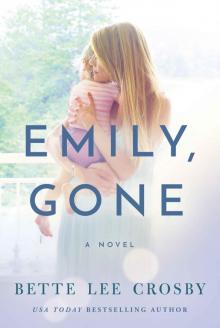 Emily, Gone
Emily, Gone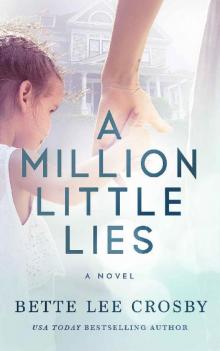 A Million Little Lies
A Million Little Lies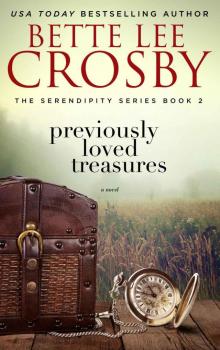 Previously Loved Treasures
Previously Loved Treasures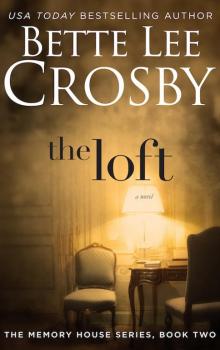 The Loft
The Loft Spare Change
Spare Change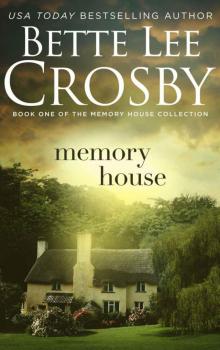 Memory House: Memory House Collection (Memory House Series Book 1)
Memory House: Memory House Collection (Memory House Series Book 1)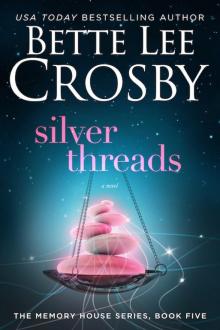 Silver Threads
Silver Threads Wishing for Wonderful: The Serendipity Series, Book 3
Wishing for Wonderful: The Serendipity Series, Book 3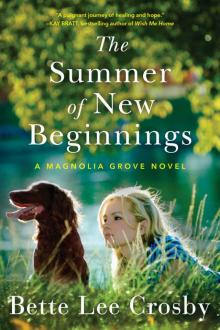 The Summer of New Beginnings: A Magnolia Grove Novel
The Summer of New Beginnings: A Magnolia Grove Novel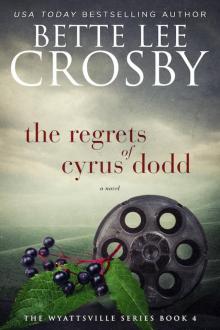 The Regrets of Cyrus Dodd
The Regrets of Cyrus Dodd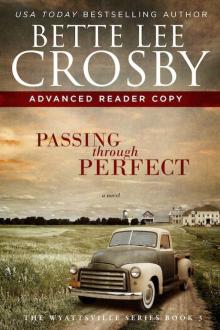 Passing Through Perfect
Passing Through Perfect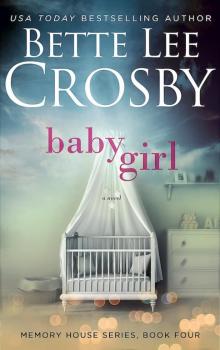 Baby Girl
Baby Girl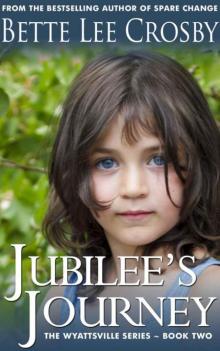 Jubilee's Journey
Jubilee's Journey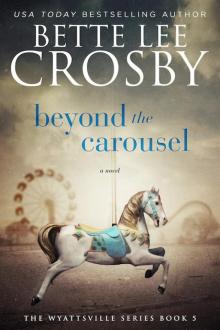 Beyond the Carousel
Beyond the Carousel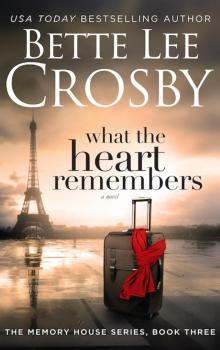 What the Heart Remembers
What the Heart Remembers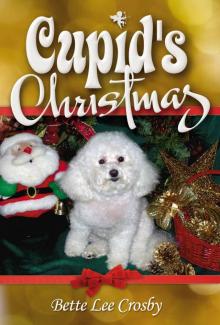 Cupid's Christmas
Cupid's Christmas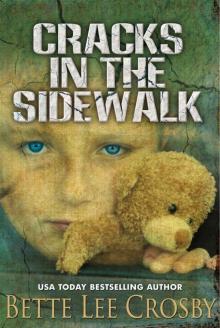 Cracks in the Sidewalk
Cracks in the Sidewalk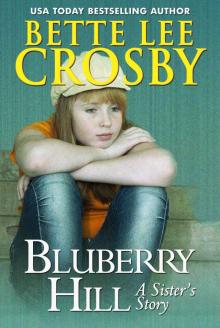 Blueberry Hill
Blueberry Hill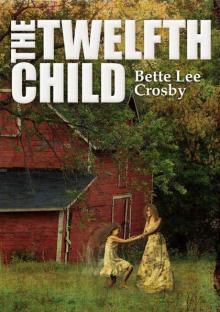 The Twelfth Child
The Twelfth Child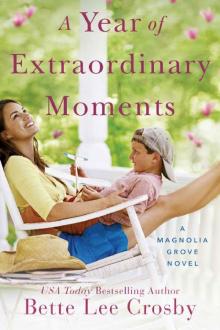 A Year of Extraordinary Moments (A Magnolia Grove Novel)
A Year of Extraordinary Moments (A Magnolia Grove Novel)